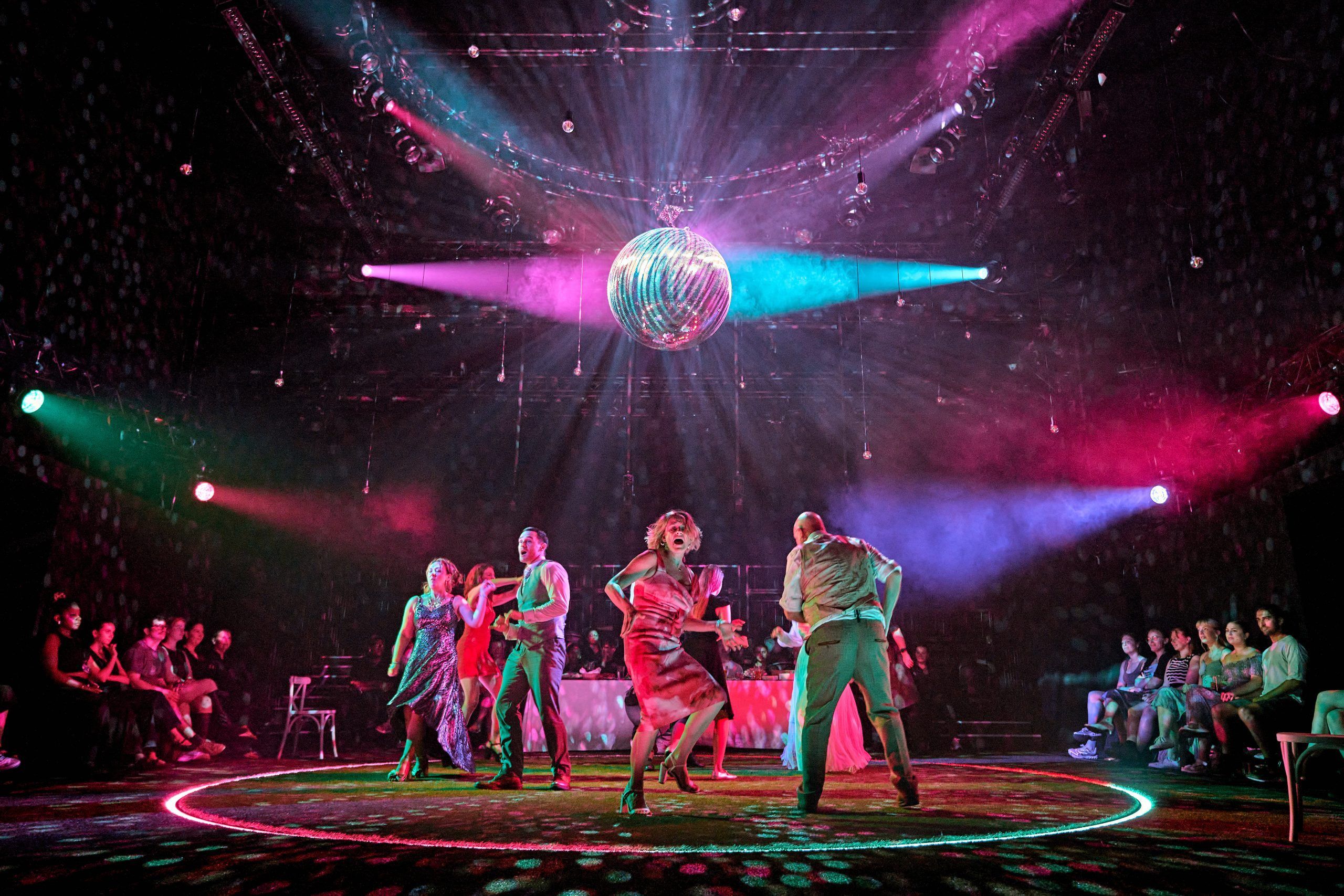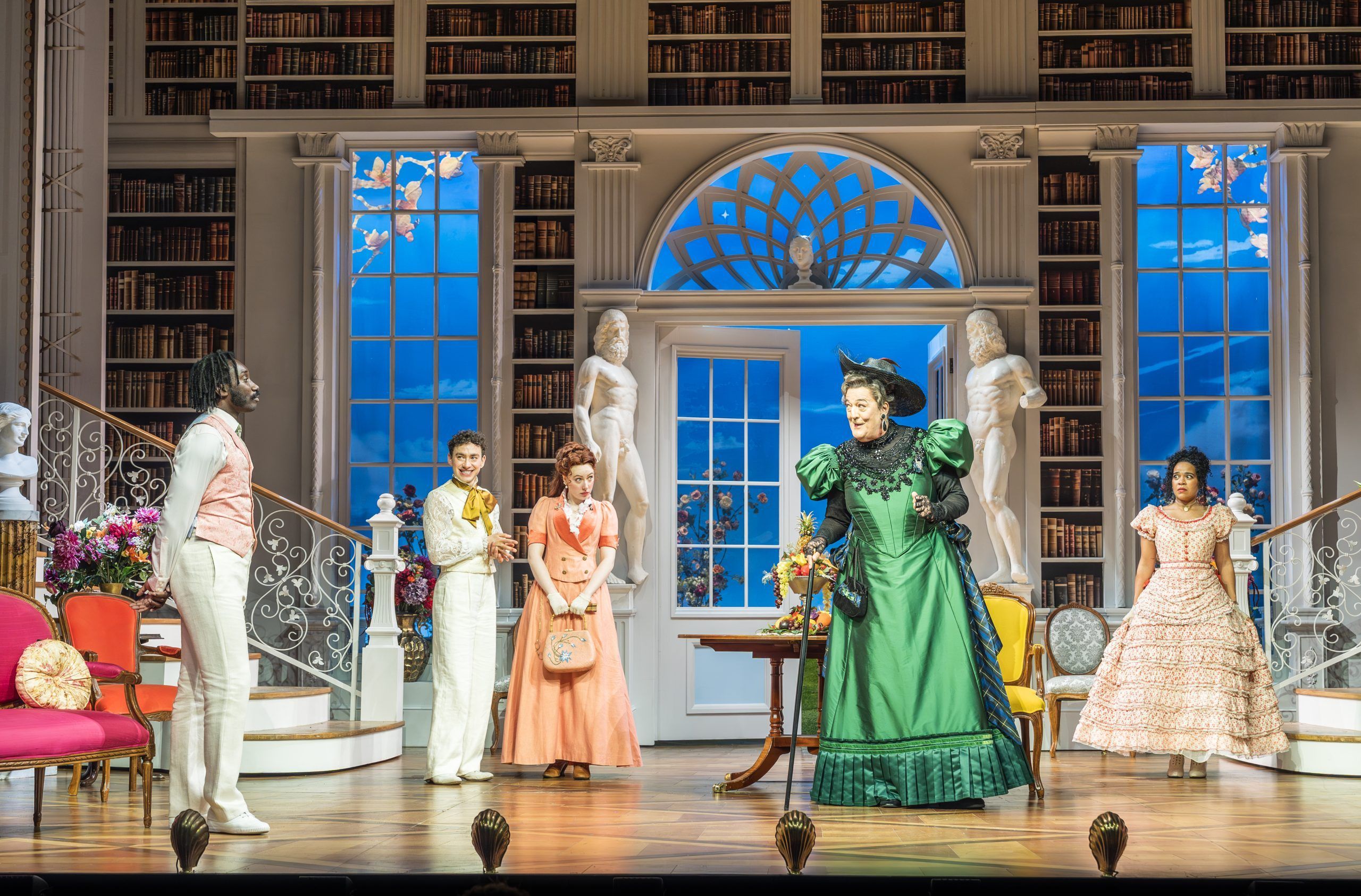Beth Steel’s Till The Stars Come Down, a triumphant transfer from the National Theatre, explodes onto the Theatre Royal Haymarket stage, offering an unvarnished portrait of a working-class family from Mansfield, Nottinghamshire. Under Bijan Sheibani’s sharp direction, this play is a masterclass in snappy dialogue, cutting humour, and uncomfortable truths, leaving a lasting impression.
The play centres on Sylvia (Sinead Matthews) on her wedding day to Marek (Julian Kostov), a Polish immigrant. We are immediately plunged into the chaotic heart of the family home, as Sylvia, her sisters Maggie (Aisling Loftus) and Hazel (Lucy Black), nieces Leanne (Ruby Thompson) and Sarah, and Auntie Carol (Dorothy Atkinson) bicker, joke, and drink Bucks Fizz whilst preparing for the upcoming nuptials that afternoon. This opening scene is a delightful, yet telling, introduction to their dynamics: Maggie, the “prodigal daughter” with a colourful past; Hazel, the burdened eldest, financially and emotionally stretched; and Sylvia, the caregiver to her widowed father, Tony (Alan Williams).
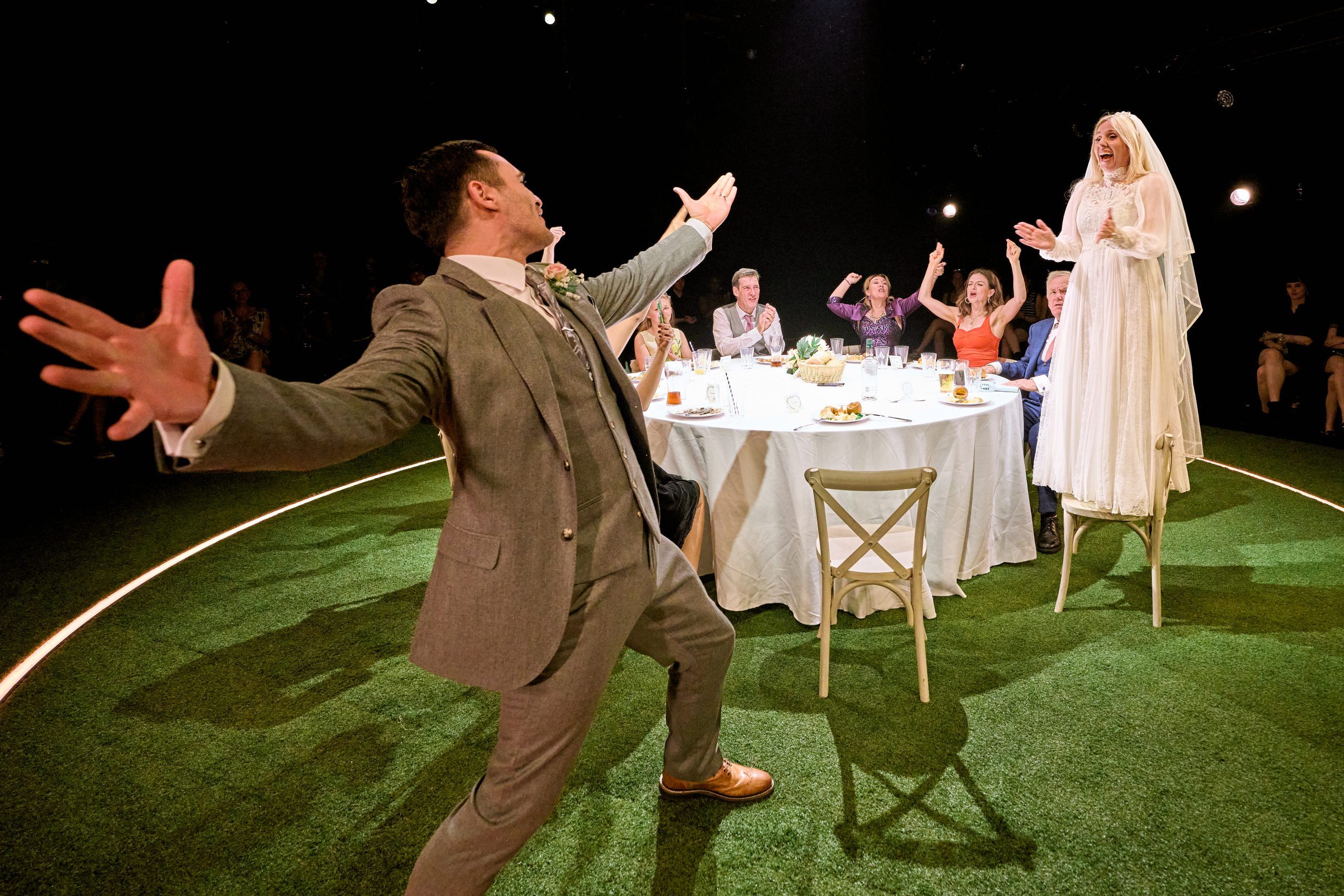
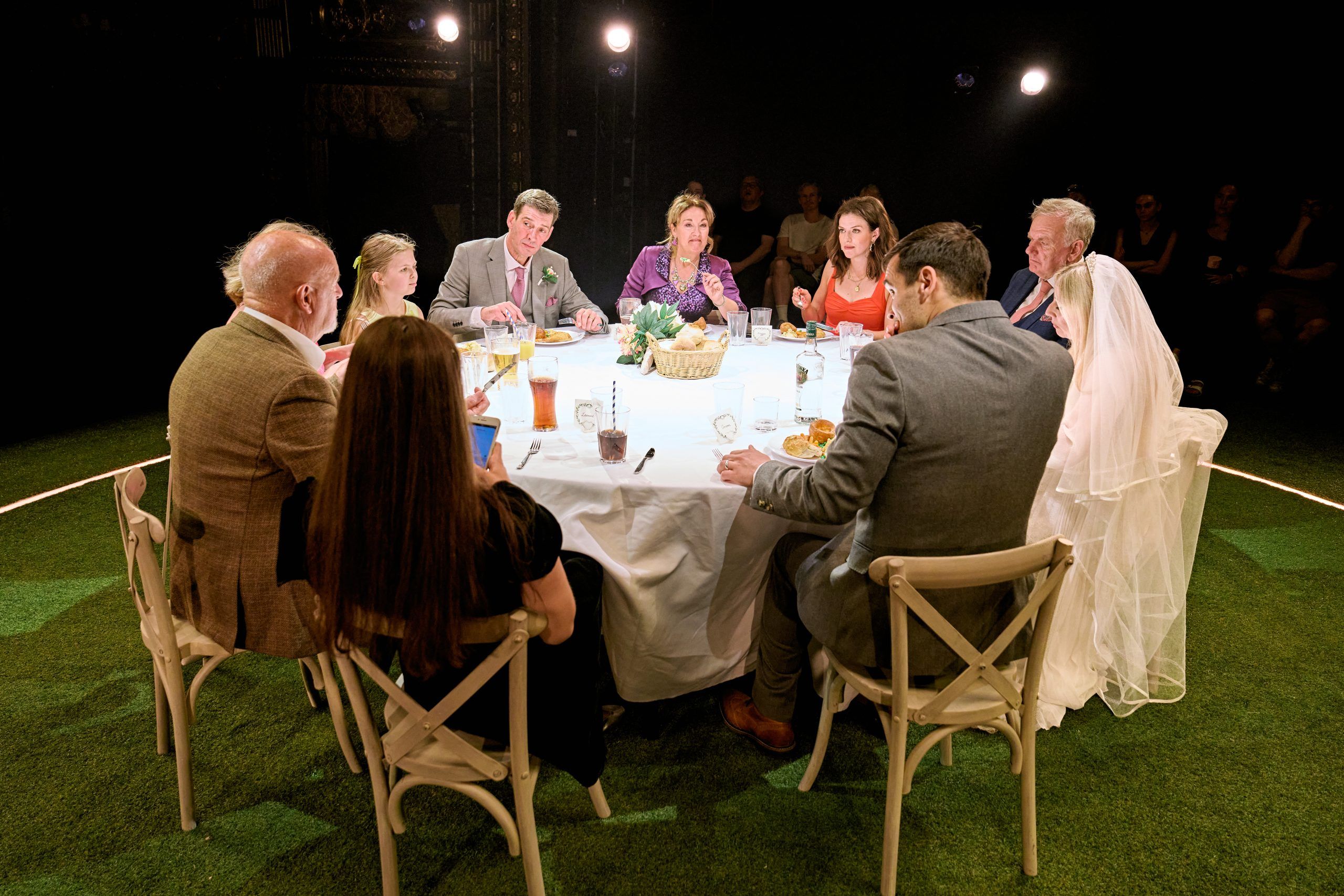

Beth Steel’s dialogue is brilliant, feeling utterly authentic, extremely funny and bitingly sharp at the same time. It’s interesting to note that Steel is a National Theatre writer in residence and this is one of the new plays that the institution has nurtured through its new writing programme. It’s also refreshing to see such a strong female presence on stage, with three sisters, two daughters, and an aunt driving much of the narrative. The inclusion of the younger actors also brings a fresh energy to the proceedings. Sarah, in particular, brings us some lighter moments, in the same way children can do at real weddings.
As the wedding festivities unfold, the underlying tensions within the family begin to bubble to the surface. The conspicuous absence of Marek’s family, coupled with eldest sister Hazel’s visceral resentment towards the local Polish community – whom she believes have “stolen” the jobs her husband John (Adrian Bower) should be getting. This exposes deep-seated prejudices as the play tackles the uncomfortable realities of post-Brexit Britain, particularly in areas like Mansfield, which voted overwhelmingly to leave the EU. These are not caricatures, but marginalised, often demonised, working-class people simply trying to navigate their lives amidst economic uncertainty and complex family dynamics.
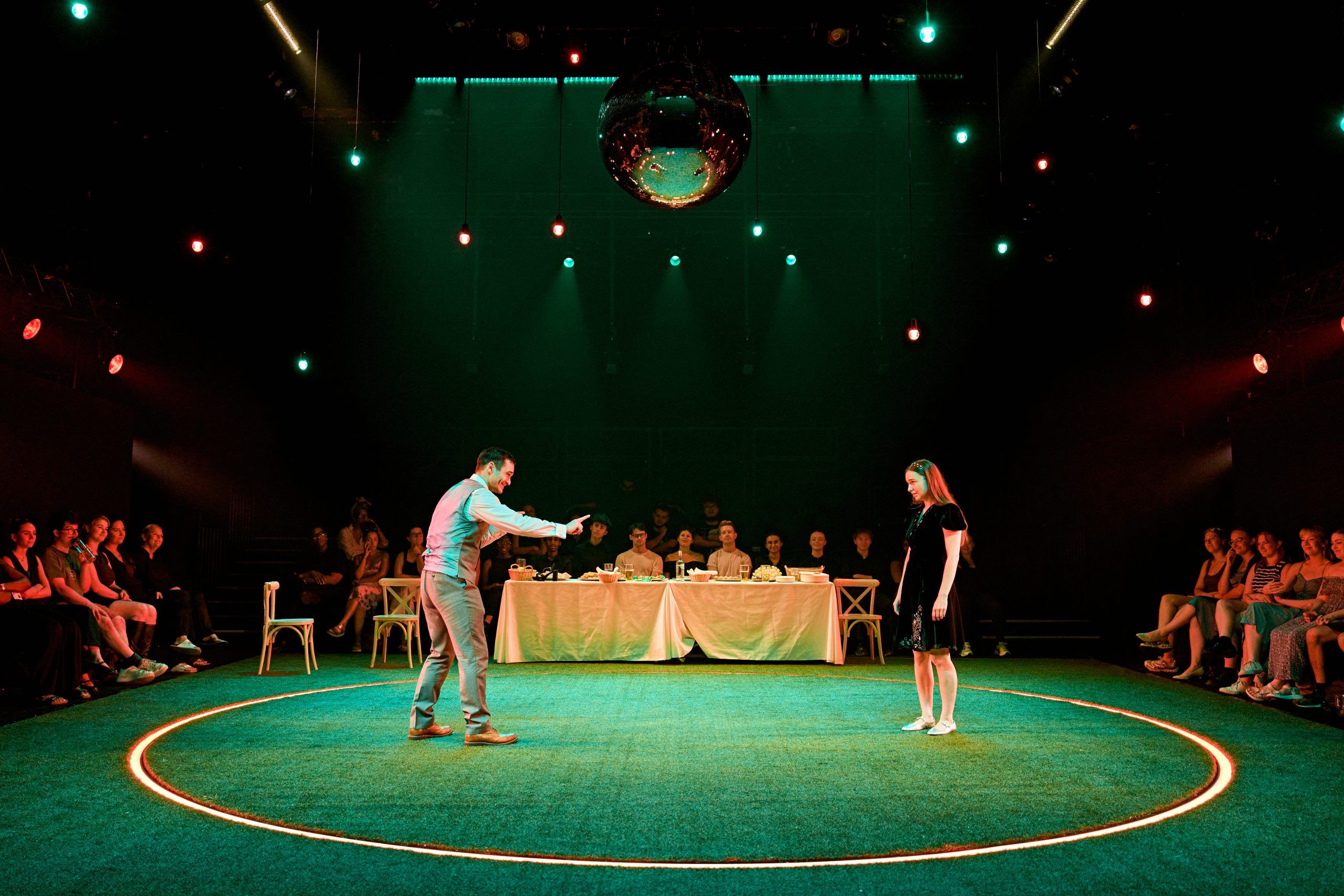
Till The Stars Come Down is unapologetic in its portrayal of family dynamics gone wrong. What begins with the seemingly unbreakable bond of “family is everything” is progressively challenged as emotions run higher and higher. The men, including Uncle Pete (Philip Whitchurch) and the downtrodden John, eventually descend into a chaotic brawl, mirroring the dramatic fall out amongst the women. Whilst at times the soap-style shouting and histrionics felt dialled up to 11, it largely served the narrative, portraying a family pushed to breaking point.
The characters are exceptionally well-drawn, with surprising depth conveyed in a short space of time, a testament to Steel’s skilful writing. We recognise the archetypes, the black sheep (Maggie), the domineering matriarch (Hazel), the tired patriarch (Tony), the outspoken aunty (Carol), yet they feel uniquely realised.
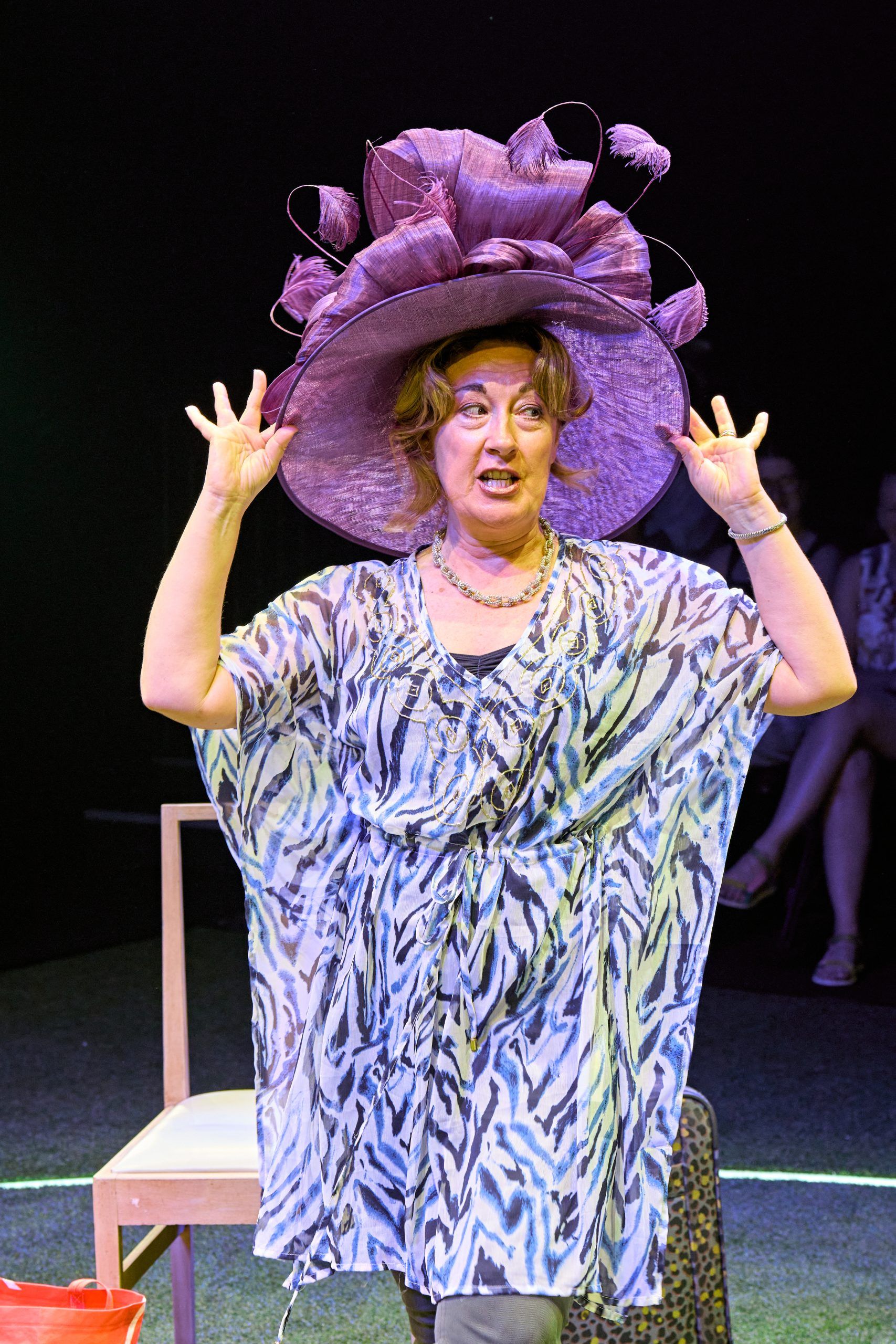

Having previously seen the production on the Dorfman stage at the National Theatre, the transfer to the Haymarket feels subtly different. While it may have lost a fraction of the claustrophobic intimacy of its original home, the in-the-round staging and the clever use of audience participation effectively recreate a sense of being part of the family’s world. The audience’s engagement during the performance was a testament to this successful adaptation.
Paule Constable’s lighting design – effective and perfectly paced with the escalating drama – deserves special mention, making her retirement from stage work a genuine loss. The strong staging, retaining much of the original National Theatre version, adapted seamlessly to the new venue. Max Richter’s version of The Four Seasons as a recurring theme perfectly complements the play’s emotional landscape, mirroring the journey of a single day – perhaps it’s the four seasons of life laid bare. Notably, Sylvia’s character arc, from quiet caregiver to assertive woman, is the most compelling transformation.
The play’s conclusion, while dramatically potent, offers no easy resolution, leaving the audience to ponder the aftermath. This lack of a neat ending forces continued reflection on the themes presented. Till The Stars Come Down provocatively examines economic inequalities, the ongoing struggles of post-industrial towns, and the complexities of immigration and integration. It shines a stark light on the persistent, troubling presence of both underlying and overt racism. It’s also truly refreshing to hear authentic working-class voices, accents, and vernacular on a London stage, although one can’t help but wish the audience itself reflected this diversity more broadly.
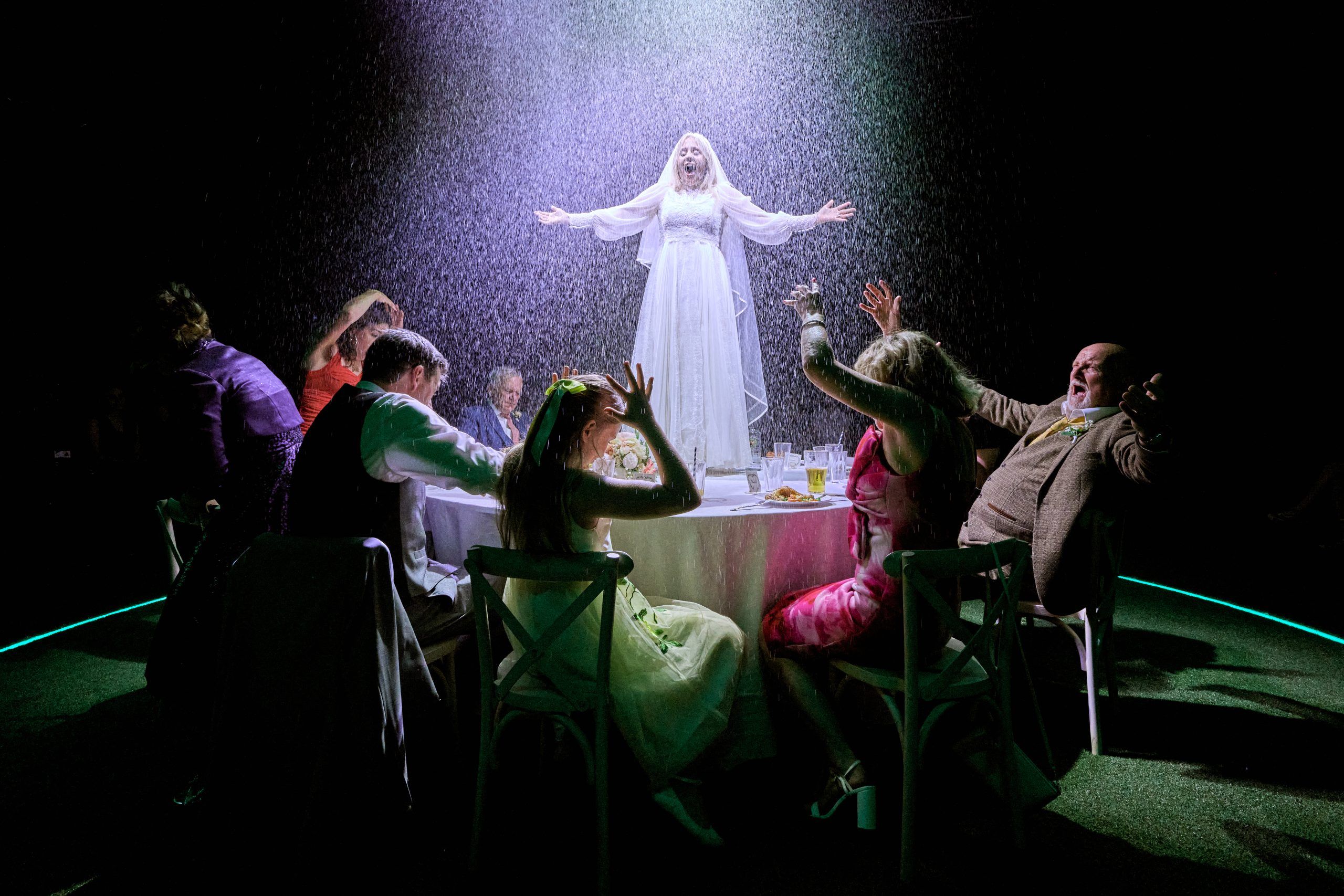

This play truly packs a punch, brimming with fantastic one-liners like ‘he made me feel like a potato in a famine’ and ‘Polish, that’s not a language, that’s a wifi password.’ It’s a play that, much like the line ‘people can be like songs, they get stuck in your head,’ will undoubtedly stick with me for a long time.
Just go and see it.
Till The Stars Come Down is playing at Theatre Royal Haymarket, currently booking until 27 September 2025.
Get your tickets at Theatre Royal Haymarket.
Words by Helen Keegan
Photography by Manuel Harlan

